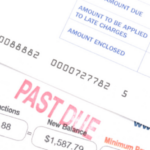What are the top questions about debt collectors?
When you have delinquent debts, a third-party debt collector may contact you to recoup the unpaid debt.
Nobody likes to be hounded by anyone — let alone someone asking for money. But unfortunately, failing to pay your consumer debts can easily lead to a debt collection lawsuit.
That’s why you should take the time to understand debt collection laws and how the business of debt collection works.
Here are some common legal questions from consumers like you.
Frequently Asked Questions About Debt Collection
Why Is a Debt Collector Contacting Me?
A debt collector is an individual from a collection agency, law firm, or company that is assigned debt by a creditor or one who purchases debt from lenders and healthcare providers, typically for pennies on the dollar, then tries to collect the full original amount of the debt.
If you’ve been contacted by a debt collection agency, it believes you are past due on a debt or is trying to locate someone you know (though they can’t reveal that person owes money).
If a debt collector claims you owe money, request a written validation notice that shows the name of the creditor, how much you owe, and steps you can take if you don’t believe the debt belongs to you.
How Can I Stop a Debt Collector from Contacting Me?
Debt collectors can be persistent, but you have the right to avoid harassment of any kind. If you no longer want a debt collector to contact you at work, send a letter by mail (make a copy for yourself before you do) asking the agency to stop all contact.
After the debt collection agency has received your letter, it can only contact you to confirm it will stop contacting you or notify you that it will take specific action against you, such as a lawsuit.
What if I Ignore a Debt Collector?
It may be tempting to simply ignore a debt collector and hope they go away, especially if you’ve asked them to stop contacting you. But collection agencies are notoriously relentless, and ignoring them is sometimes the worst thing you can do.
If you stop taking calls or responding to allowed communication, the debt collector can then try to take legal action and sue you to collect the monies they claim you owe.
What if I Don’t Recognize the Debt?
Debt collection agencies are required by law to send you a written validation notice that includes the following information:
- The name of the creditor you owe money
- How much you owe
- Steps you can take if you don’t believe it’s your debt
If you don’t think it’s yours, you can send a letter stating that you don’t recognize it or asking for verification of the debt, such as a copy of the bill. Send this within 30 days of receiving the validation notice from the debt collection agency or creditor contacting you.
What if I Owe Money on Multiple Debts With the Same Collection Agency?
If a debt collector is asking you to pay more than one debt, you can choose how your payments are applied. For example, you may choose to have a payment applied to a secured debt instead of an unsecured one so you don’t lose the collateral on the secured loan.
It’s also important to note that collectors cannot apply payments to a debt that you are disputing.
How Does Debt Collection Affect My Credit Score?
Your payment history is the most important factor used to calculate your credit score. As a result, having a credit account in collections is very serious because it means the lender has not been able to get paid for monies they claim you owe them.
In addition to dropping your credit score, having a debt in collections can make it challenging to get approved for credit in the future, even if you’ve paid off what you owe.
That said, with the FICO 9 version of the FICO credit score, paid collection accounts are not included when calculating your credit score, though the late payments that led to defaulting will. Keep in mind, though, that many lenders still use older versions of the FICO score, which don’t exclude paid collections.
What Are My Rights When it Comes to Debt Collection?
Debt collectors can be adamant when trying to collect on an alleged debt. In addition to contacting your home, they can contact your work. Also, debt collectors often record calls.
According to the Fair Debt Collection Practices Act, though, debt collectors are not allowed to do any of the following:
- Call you before 8 a.m. or after 9 p.m.
- Contact you at work if you’ve told them (in writing or verbally) that your employer does not allow you to receive such calls.
- Tell any third party that you owe money or contact anyone but you for any reason other than to get your contact information.
- Harass or abuse you or anyone else they contact about you and your debt.
- Misrepresent how much you owe.
- Use deception to collect, such as posing as law enforcement, threatening arrest, garnishment of wages, or seizure of assets, reporting false information about you to the credit bureaus, or using a fake company name.
What if I Think a Creditor Violated the Fair Debt Collection Practices Act (FDCPA), Consumer Financial Protection Act (CFPA), or Fair Credit Reporting Act (FCRA)?
Debt collectors often claim they are dedicated and responsible for meeting their compliance responsibilities. However, a quick search on the internet can reveal many complaints about and lawsuits against various debt collection agencies.
While collectors are supposed to abide by the FDCPA, CFPA, and FCRA, that doesn’t always happen. If you believe a debt collector has violated one of these laws, you can report the agency to your state’s attorney general, the Federal Trade Commission, and the CFPB.
What Do I Do if a Debt Collector Is Suing Me?
The most important thing you can do is respond to the summons you receive by the date specified therein. If you ignore it, the court could award a default judgment to the creditor suing you, and it may be able to then proceed with wage garnishments, liens, or other measures to collect what you owe.
If you’re being sued by a debt collection agency, it’s also important to know your rights and find the best help to get you through the process. Consider working with a debt resolution attorney who can defend your rights and advocate for you to make sure the matter gets resolved in your best interest. Contact Tayne Law Group for a free no-obligation consultation on any debt matter including lawsuits, judgments, liens, and frozen bank accounts.


